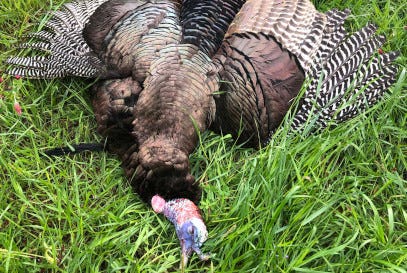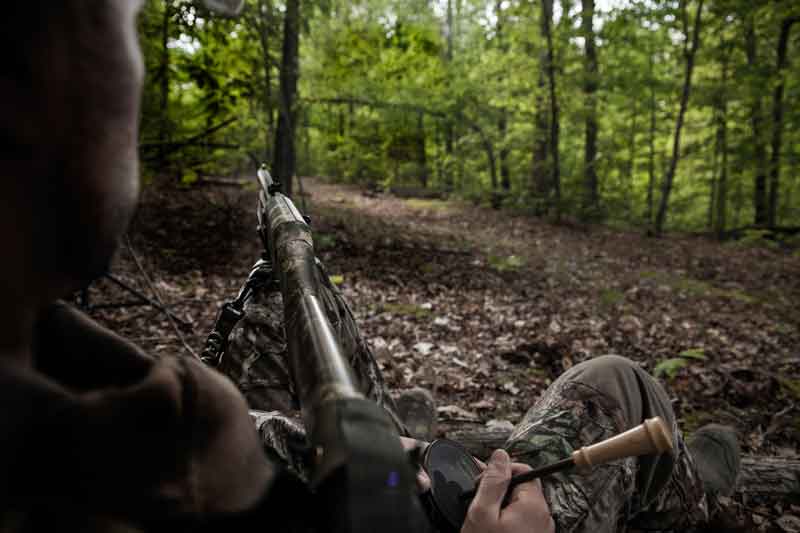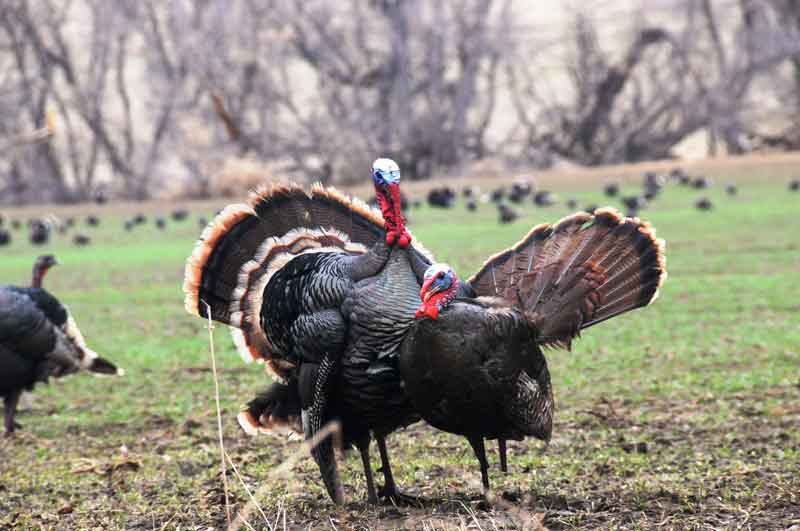- Mar 31, 2016
Different Arsenals For Different Days
Different Arsenals For Different Days
No day is the same in the turkey woods. Just because your calling tactics worked for you one day doesn’t mean that they’ll work the next. Turkey behavior varies depending on the weather and the phase of the breeding season, as well as numbers of other factors, such as hunting pressure, terrain and bird population in a given area. While you can’t account for every single influence that may affect a gobbler’s behavior, you can adjust your calling to get the best results for the weather and breeding conditions.
Chris Parrish, product manager for Knight & Hale Game Calls & National Turkey Calling Champion, said having a well-stocked arsenal of turkey calls and knowing when and how to use them is vital to success.
“Variety is key,” Parrish said. “I’m always going to have many different calls on hand. I’ll need some that are loud and can cover a great distance and some that are softer. You never know what the weather will do or how the birds will behave, so be prepared with a number of different calls.”
On windy days, turkeys have a harder time hearing calls due to the noise of the wind through the trees and vegetation. On such days, you want to reach out and touch the turkeys with a louder call.
“I’ll often use a box call on windy days,” Parrish said. “I especially like the Switchblade 3-in-1 Turkey Box Call. It has three different lids, each made from a different type of wood that produces a unique hen sound. The one-piece box design produces loud, far-carrying tones, perfect for windy days. The Widowmaker Tube Turkey Call is also fantastic for cutting and locating turkeys on windy days. It reaches out further than a mouth call, but it still produces a sound similar to a mouth call.”
Parrish said even though the turkeys can’t hear your calls as well when the wind is blowing, that noisy wind can work to your benefit.
“Once they hear your call, they may come immediately because they don’t want to lose track of where the calls came from.”
He says rainy days are similar to windy days, as the sound of the rain inhibits the turkeys’ ability to hear calls.
“On rainy days, hunt open areas,” he said. “The birds can’t hear well in the woods with the rain splattering on the vegetation. They’re going to gather in open areas, so put yourself in position to be within range of where they’ll most likely gather. The Wet Willy Double Sided Turkey Box Call is a great choice for such conditions. It not only sounds good during a downpour, but its 100% waterproof. On rainy days I also like to use an Ol’ Yeller Classic Ceramic Pot Call or Dual Threat Glass and Slate Pot Call. Both of those calls are versatile, so I’ll use them on fair-weather days as well. When it’s pouring down, I’ll use the weatherproof Echotech Turkey Pot Call Striker with the pot calls for that loud sound I need to break through the noisy rain.”
Of course weather shouldn’t be the only factor determining the type of calls you use and make. In addition to adjusting your calls according to the weather, you also need to know what phase of the breeding cycle the turkeys are in.
“A good rule of thumb is, if the turkeys are vocal and you hear a lot of gobbling and hens purring, then pick up a call and do some aggressive calling,” he said. “If you don’t hear a lot of turkey talking going on and it’s the peak of breeding season, then tone your calling down. Use non-aggressive calls. Do some soft yelping with a Preacher Diaphragm Turkey Call. You essentially want to reflect with your calling what you’re hearing in the field, and if you’re dealing with wind or rain, you’ll want to make those calls a bit louder.”



